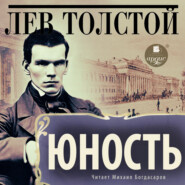По всем вопросам обращайтесь на: info@litportal.ru
(©) 2003-2025.
✖
Sevastopol
Настройки чтения
Размер шрифта
Высота строк
Поля
Volodya was allowed to draw first; he took one slip, which was rather long, but it immediately occurred to him to change it; he took another, which was smaller and thinner, unfolded it, and read on it, “I go.”
“It has fallen to me,” he said, with a sigh.
“Well, God be with you. You will get your baptism of fire at once,” said the commander of the battery, gazing at the perturbed countenance of the ensign with a kindly smile; “but you must get there as speedily as possible. And, to make it more cheerful for you, Vlang shall go with you as gun-sergeant.”
XX
Vlang was exceedingly well pleased with the duty assigned to him, and ran hastily to make his preparations, and, when he was dressed, he went to the assistance of Volodya, and tried to persuade the latter to take his cot and fur coat with him, and some old “Annals of the Country,” and a spirit-lamp coffee-pot, and other useless things. The captain advised Volodya to read up his “Manual,”[12 - “Manual for Artillery Officers,” by Bezak.] first, about mortar-firing, and immediately to copy the tables out of it.
Volodya set about this at once, and, to his amazement and delight, he perceived that, though he was still somewhat troubled with a sensation of fear of danger, and still more lest he should turn out a coward, yet it was far from being to that degree to which it had affected him on the preceding evening. The reason for this lay partly in the daylight and in active occupation, and partly, principally, also, in the fact that fear and all powerful emotions cannot long continue with the same intensity. In a word, he had already succeeded in recovering from his terror.
At seven o'clock, just as the sun had begun to hide itself behind the Nikolaevsky barracks, the sergeant came to him, and announced that the men were ready and waiting for him.
“I have given the list to Vlanga. You will please to ask him for it, Your Honor!” said he.
Twenty artillery-men, with side-arms, but without loading-tools, were standing at the corner of the house. Volodya and the yunker stepped up to them.
“Shall I make them a little speech, or shall I simply say, ‘Good day, children!’ or shall I say nothing at all?” thought he. “And why should I not say, ‘Good day, children!’ Why, I ought to say that much!” And he shouted boldly, in his ringing voice: —
“Good day, children!”
The soldiers responded cheerfully. The fresh, young voice sounded pleasant in the ears of all. Volodya marched vigorously at their head, in front of the soldiers, and, although his heart beat as if he had run several versts at the top of his speed, his step was light and his countenance cheerful.
On arriving at the Malakoff mound, and climbing the slope, he perceived that Vlang, who had not lagged a single pace behind him, and who had appeared such a valiant fellow at home in the house, kept constantly swerving to one side, and ducking his head, as though all the cannon-balls and bombs, which whizzed by very frequently in that locality, were flying straight at him. Some of the soldiers did the same, and the faces of the majority of them betrayed, if not fear, at least anxiety. This circumstance put the finishing touch to Volodya's composure and encouraged him finally.
“So here I am also on the Malakoff mound, which I imagined to be a thousand times more terrible! And I can walk along without ducking my head before the bombs, and am far less terrified than the rest! So I am not a coward, after all?” he thought with delight, and even with a somewhat enthusiastic self-sufficiency.
But this feeling was soon shaken by a spectacle upon which he stumbled in the twilight, on the Kornilovsky battery, in his search for the commander of the bastion. Four sailors standing near the breastworks were holding the bloody body of a man, without shoes or coat, by its arms and legs, and staggering as they tried to fling it over the ramparts.
(On the second day of the bombardment, it had been found impossible, in some localities, to carry off the corpses from the bastions, and so they were flung into the trench, in order that they might not impede action in the batteries.)
Volodya stood petrified for a moment, as he saw the corpse waver on the summit of the breastworks, and then roll down into the ditch; but, luckily for him, the commander of the bastion met him there, communicated his orders, and furnished him with a guide to the battery and to the bomb-proofs designated for his service. We will not enumerate the remaining dangers and disenchantments which our hero underwent that evening: how, instead of the firing, such as he had seen on the Volkoff field, according to the rules of accuracy and precision, which he had expected to find here, he found two cracked mortars, one of which had been crushed by a cannon-ball in the muzzle, while the other stood upon the splinters of a ruined platform; how he could not obtain any workmen until the following morning in order to repair the platform; how not a single charge was of the weight prescribed in the “Manual;” how two soldiers of his command were wounded, and how he was twenty times within a hair's-breadth of death.
Fortunately, there had been assigned for his assistant a gun-captain of gigantic size, a sailor, who had served on the mortars since the beginning of the siege, and who convinced him of the practicability of using them, conducted him all over the bastion, with a lantern, during the night, exactly as though it had been his own kitchen-garden, and who promised to put everything in proper shape on the morrow.
The bomb-proof to which his guide conducted him was excavated in the rocky soil, and consisted of a long hole, two cubic fathoms in extent, covered with oaken planks an arshin in thickness. Here he took up his post, with all his soldiers. Vlang was the first, when he caught sight of the little door, twenty-eight inches high, of the bomb-proof, to rush headlong into it, in front of them all, and, after nearly cracking his skull on the stone floor, he huddled down in a corner, from which he did not again emerge.
And Volodya, when all the soldiers had placed themselves along the wall on the floor, and some had lighted their pipes, set up his bed in one corner, lighted a candle, and lay upon his cot, smoking a cigarette.
Shots were incessantly heard, over the bomb-proof, but they were not very loud, with the exception of those from one cannon, which stood close by and shook the bomb-proof with its thunder. In the bomb-proof itself all was still; the soldiers, who were a little shy, as yet, of the new officer, only exchanged a few words, now and then, as they requested each other to move out of the way or to furnish a light for a pipe. A rat scratched somewhere among the stones, or Vlang, who had not yet recovered himself, and who still gazed wildly about him, uttered a sudden vigorous sigh.
Volodya, as he lay on his bed, in his quiet corner, surrounded by the men, and illuminated only by a single candle, experienced that sensation of well-being which he had known as a child, when, in the course of a game of hide-and-seek, he used to crawl into a cupboard or under his mother's skirts, and listen, not daring to draw his breath, and afraid of the dark, and yet conscious of enjoying himself. He felt a little oppressed, but cheerful.
XXI
After the lapse of about ten minutes, the soldiers began to change about and to converse together. The most important personages among them – the two gun-sergeants – placed themselves nearest the officer's light and bed; – one was old and gray-haired, with every possible medal and cross except the George; – the other was young, a militia-man, who smoked cigarettes, which he was rolling. The drummer, as usual, assumed the duty of waiting on the officer. The bombardiers and cavalrymen sat next, and then farther away, in the shadow of the entrance, the underlings took up their post. They too began to talk among themselves. It was caused by the hasty entrance of a man into the casemate.
“How now, brother! couldn't you stay in the street? Didn't the girls sing merrily?” said a voice.
“They sing such marvellous songs as were never heard in the village,” said the man who had fled into the casemate, with a laugh.
“But Vasin does not love bombs – ah, no, he does not love them!” said one from the aristocratic corner.
“The idea! It's quite another matter when it's necessary,” drawled the voice of Vasin, who made all the others keep silent when he spoke: “since the 24th, the firing has been going on desperately; and what is there wrong about it? You'll get killed for nothing, and your superiors won't so much as say ‘Thank you!’ for it.”
At these words of Vasin, all burst into a laugh.
“There's Melnikoff, that fellow who will sit outside the door,” said some one.
“Well, send him here, that Melnikoff,” added the old gunner; “they will kill him, for a fact, and that to no purpose.”
“Who is this Melnikoff?” asked Volodya.
“Why, Your Honor, he's a stupid soldier of ours. He doesn't seem to be afraid of anything, and now he keeps walking about outside. Please to take a look at him; he looks like a bear.”
“He knows a spell,” said the slow voice of Vasin, from the corner.
Melnikoff entered the bomb-proof. He was fat (which is extremely rare among soldiers), and a sandy-complexioned, handsome man, with a huge, bulging forehead and prominent, light blue eyes.
“Are you afraid of the bombs?” Volodya asked him.
“What is there about the bombs to be afraid of!” replied Melnikoff, shrugging his shoulders and scratching his head, “I know that I shall not be killed by a bomb.”
“So you would like to go on living here?”
“Why, of course, I would. It's jolly here!” he said, with a sudden outburst of laughter.
“Oh, then you must be detailed for the sortie! I'll tell the general so, if you like?” said Volodya, although he was not acquainted with a single general there.
“Why shouldn't I like! I do!”
And Melnikoff disappeared behind the others.
“Let's have a game of noski[13 - A game in which the loser is rapped on the nose with the cards.], children! Who has cards?” rang out his brisk voice.
And, in fact, it was not long before a game was started in the back corner, and blows on the nose, laughter, and calling of trumps were heard.
Volodya drank some tea from the samovár, which the drummer served for him, treated the gunners, jested, chatted with them, being desirous of winning popularity, and felt very well content with the respect which was shown him. The soldiers, too, perceiving that the gentleman put on no airs, began to talk together.
One declared that the siege of Sevastopol would soon come to an end, because a trustworthy man from the fleet had said that the emperor's brother Constantine was coming to our relief with the 'Merican fleet, and there would soon be an agreement that there should be no firing for two weeks, and that a rest should be allowed, and if any one did fire a shot, every discharge would have to be paid for at the rate of seventy-five kopeks each.
Vasin, who, as Volodya had already noticed, was a little fellow, with large, kindly eyes, and side-whiskers, related, amid a general silence at first, and afterwards amid general laughter, how, when he had gone home on leave, they had been glad at first to see him, but afterwards his father had begun to send him off to work, and the lieutenant of the foresters' corps sent his drozhki for his wife.
All this amused Volodya greatly. He not only did not experience the least fear or inconvenience from the closeness and heavy air in the bomb-proof, but he felt in a remarkably cheerful and agreeable frame of mind.
Many of the soldiers were already snoring. Vlang had also stretched himself out on the floor, and the old gun-sergeant, having spread out his cloak, was crossing himself and muttering his prayers, preparatory to sleep, when Volodya took a fancy to step out of the bomb-proof, and see what was going on outside.
“Take your legs out of the way!” cried one soldier to another, as soon as he rose, and the legs were pressed aside to make way for him.

















